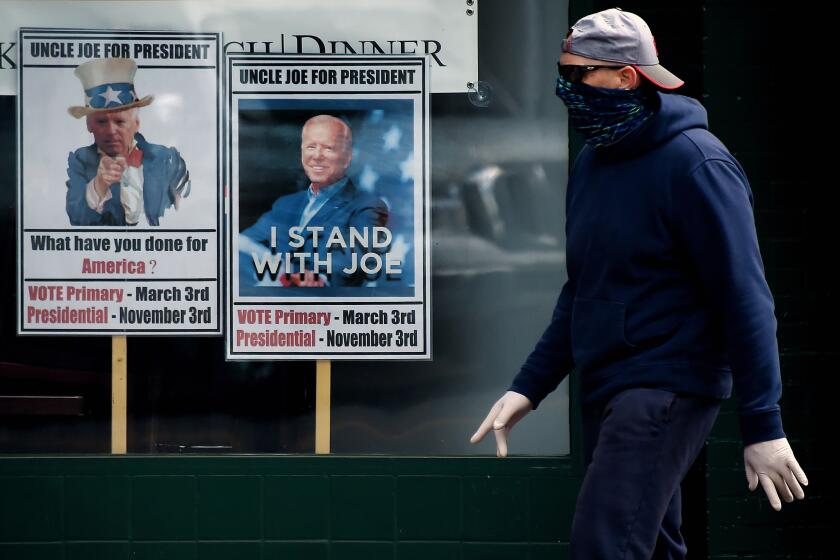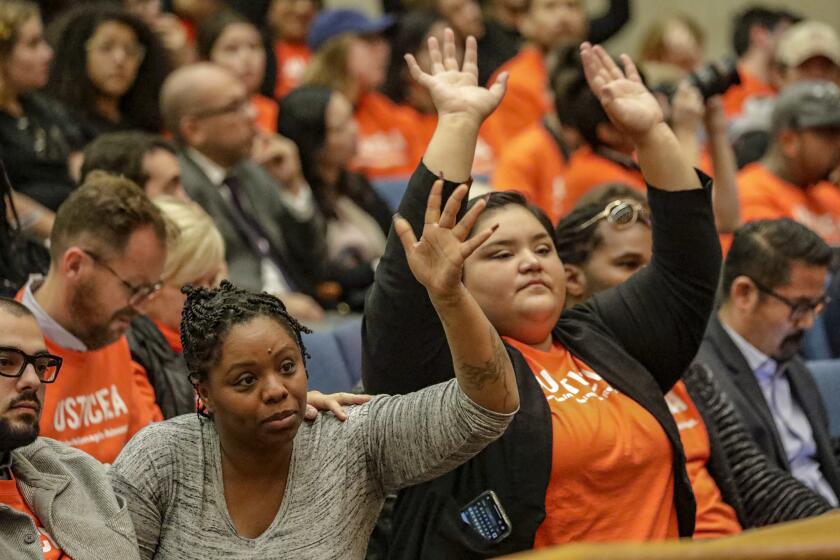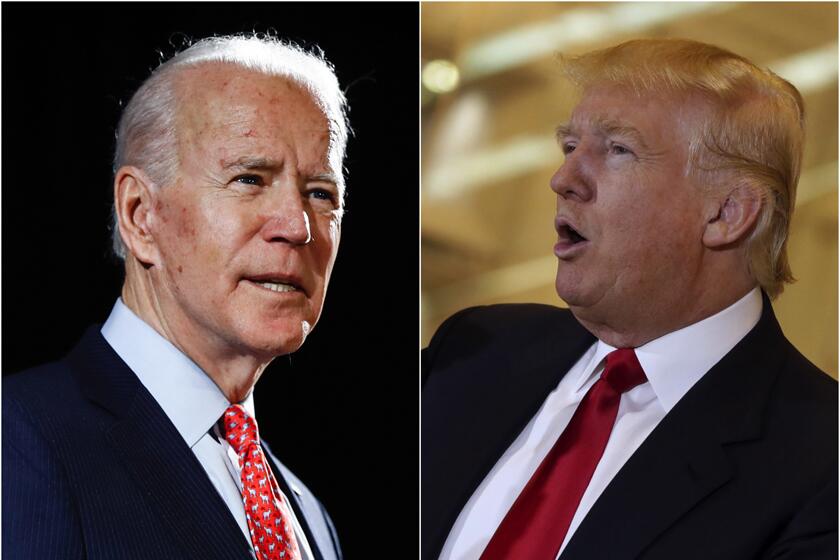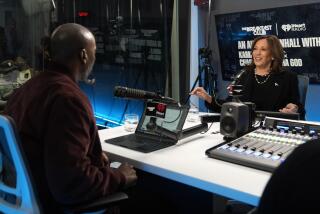Biden says black voters contemplating Trump ‘ain’t black’; later says he was too ‘cavalier’
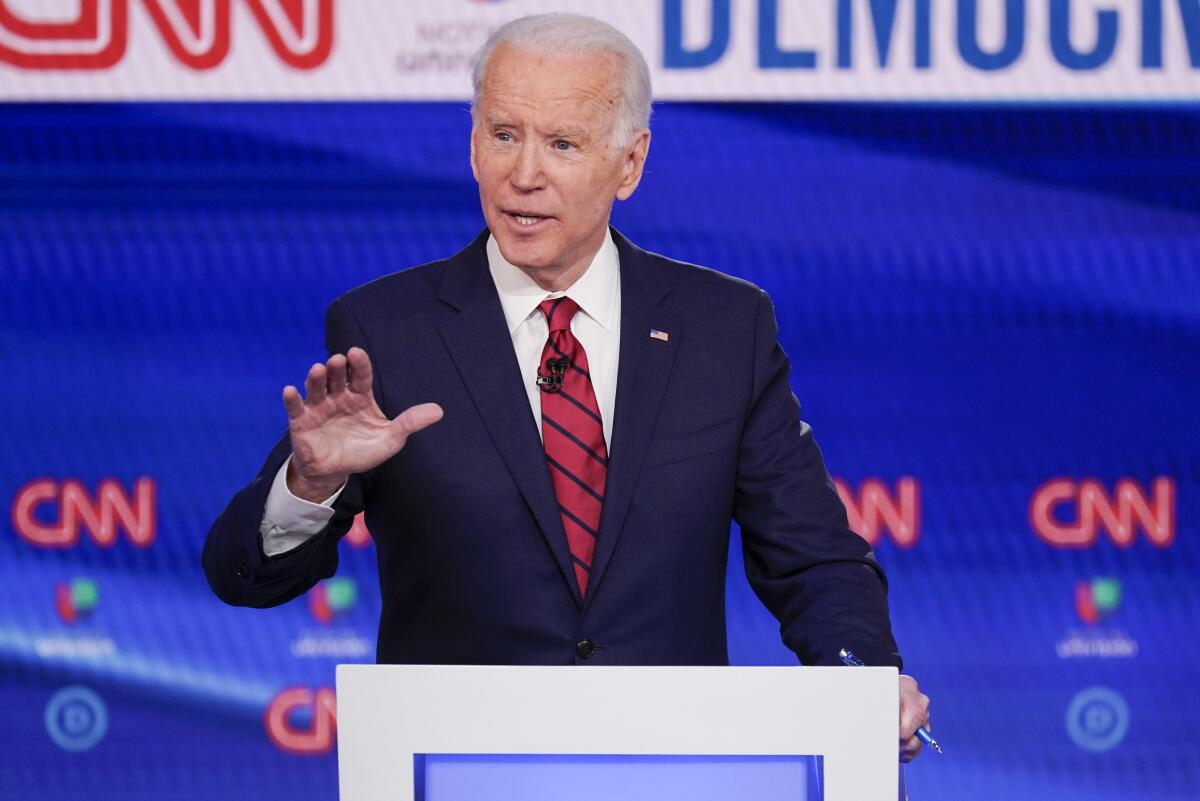
Joe Biden, whose presidential bid was buoyed in the primary by support from African Americans, came under scrutiny on Friday for telling a radio host that black people who were considering voting for Trump “ain’t black.”
The comments by the former vice president came at the end of a spirited interview with Charlamagne Tha God, a host of the popular radio show “The Breakfast Club.” A top campaign aide said Biden was joking, but Republicans quickly seized on the statement and some black Democrats expressed concern that the remark could turn off a crucial voting bloc for the presumptive Democratic nominee.
“He’s not making it easy to engage black voters. It’s an alienating comment,” said Aimee Allison, a Bay Area political strategist and founder of She the People, a group that promotes women of color in politics. “You’ve got to take us seriously, you have to show respect. You can’t diminish the importance of 25% of the voting base of the Democratic Party.”
Joe Biden’s pledges to ‘change the system’ echo Bernie Sanders and Elizabeth Warren and reflect a new American reality.
In a subsequent call on Friday with black business owners, Biden said he shouldn’t have been “so cavalier” in his remarks.
“I have never, ever, ever taken the African American community for granted.... I shouldn’t have been such a wise guy,” he said.
During the roughly 20-minute interview, Charlamagne pressed Biden on his record on criminal justice and the likelihood of picking a black woman to be his vice president.
Pointing to recent reports that Biden is vetting Minnesota Sen. Amy Klobuchar, who is white, to be his running mate, the radio host asked about calls for Biden to put a black woman on the ticket, noting that “black people saved your political life in the primaries this year.”
Biden demurred on naming specific candidates but said “there are multiple black women being considered. Multiple.”
After a campaign aide cut in to end the interview, the radio host asked Biden to commit to returning for another interview, noting it was “a long way until November” and he still had more questions for the candidate.
Biden agreed but added: “You’ve got more questions. But I tell you, if you have a problem figuring out whether you’re for me or Trump, then you ain’t black.”
The host countered that Trump wasn’t the issue, and that he wanted more for his community.
“Take a look at my record, man,” Biden responded. “I extended the Voting Rights [Act] 25 years. I have a record that is second to none. The NAACP endorsed me every time I’ve run. I mean, come on, take a look at the record.”
Twenty-five years ago, after passing the most sweeping anti-crime bill in history, Democrats were ecstatic, convinced they’d not only addressed a top concern of voters but finally shed the party’s soft-on-crime label.
Symone D. Sanders, a senior advisor to Biden, later wrote on Twitter that he had spent a career advocating for African Americans.
“The comments made at the end of the Breakfast Club interview were in jest, but let’s be clear about what the VP was saying: he was making the distinction that he would put his record with the African American community up against Trump’s any day. Period,” she wrote.
Trump has a history of making racially insensitive remarks, including saying there were “very fine people on both sides” of a clash between white supremacists and anti-racist demonstrators in Charlottesville, Va. and telling four Democratic members of Congress, all women of color and all but one born in the U.S., to “go back” to where they came from.
Nevertheless, backers of Trump were quick to condemn Biden.
“That is the most arrogant, condescending comment I’ve heard in a very long time,” said Sen. Tim Scott, the only black Republican senator, said in an interview on Fox Business Network.
This is not the first time Biden’s garrulousness has led him to speak clumsily about race. During the primary, he said “poor kids are just as talented and bright as white kids,” before correcting himself, and in a Democratic debate, he gave a rambling answer to a question about desegregation that included encouraging parents to play the record player to grow a child’s vocabulary.
The misfires did little to undermine his strong performance with black voters once the contests began. His nearly 30-point win in the South Carolina primary resuscitated his flagging bid and sparked a hot streak that captured the nomination. He performed particularly well in states with large African American populations.
But that hasn’t quelled concerns among some Democrats that Biden must energize black voters in the general election, especially after a drop-off among that group in 2016 helped contribute to Hillary Clinton’s loss to Trump.
In a poll this week by Quinnipiac University, Biden was backed by 85% of black respondents, while 3% chose Trump and 13% were undecided.
Allison said it would be a mistake to assume that black voters would be motivated to go to the polls simply on a platform of beating Trump, instead of proactively making a case for how a Biden presidency would address their concerns.
“It’s not a choice between Biden and Trump. That’s a mischaracterization. It’s a choice between Biden and not voting,” she said. “That comment suggested a real misunderstanding about the power of black voters. We are critical, and we must turn out in high numbers, and we must turn out across our demographic.”
Joe Biden to black voters: ‘If you have a problem figuring out whether you’re for me or Trump, then you ain’t black.’ That’s going to haunt him.
More to Read
Get the L.A. Times Politics newsletter
Deeply reported insights into legislation, politics and policy from Sacramento, Washington and beyond. In your inbox three times per week.
You may occasionally receive promotional content from the Los Angeles Times.
